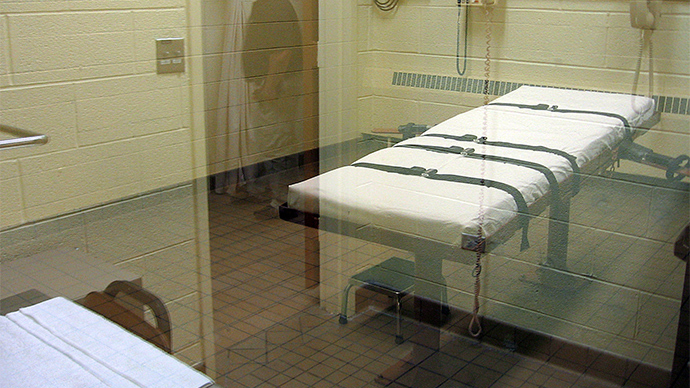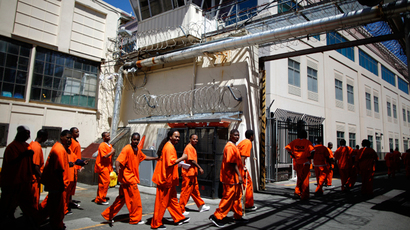Missouri Governor asked to intervene ahead of inmate’s Wednesday execution

As Missouri prepares to execute its sixth inmate this year, new evidence has surfaced leading defense attorneys to declare the convicted murderer on death row innocent. So far, the state has not budged.
The case revolves around three murders which took place in 1995 in Harrison County and Mercer County, Missouri. Although 54-year-old John Middleton was then convicted and sentenced to death – primarily on circumstantial evidence – his attorneys claim they have uncovered new forensic evidence showing that when the third murder took place, Middleton was already in custody on misdemeanor suspicions dozens of miles away.
If that’s the case, attorney Joseph Perkovich said the prosecution’s timeline of events is incorrect and that Middleton has an “iron-clad alibi.”
“The case against my client is a circumstantial case based on witnesses identifying him at certain points on a certain day,” he said to the Guardian. “If the state is wrong about the date of death by 24 hours, its case is completely dismantled as my client was 40 miles from the crime scene in custody.”
Specifically, forensic entomologist Robert Hall originally determined the third victim’s time of death by way of an analysis of insect larvae, which was collected from the body. Under the assumption that this larvae was collected the day the body was discovered (June 26), Hall worked backwards to calculate the time of death to be June 23. However, Harrison County’s then-coroner Carl Slaughter recently testified that no larvae could’ve been collected until June 27, because he kept the body in a padlocked body bag the entire day of the 26th.
If true, Hall said that would mean the third victim could not have died on the 23rd, as previously believed.
“For almost 20 years we thought that my analysis had been accurate,” Hall told the Guardian. “But now we find that the time of collection of the insects was about 24 hours later than I had been informed. I went back and did the analysis again and found that it pushed the time the victim had to be dead, similarly, by a day to [June 24].”
Additionally, the lawyers said they have new testimony from a witness who claimed he was beaten by the two drug dealers who testified against Middleton but may have actually been responsible for the murders themselves. All three murders are believed to be the result of local meth dealers attempting to crush the possibility that someone might cooperate with the police, and the unidentified witness said he was shown what looked like the third victim’s body before being beaten.
“They thought I was a snitch and brought me to the body” to demonstrate what would happen if he went to the police, the man said in February. “There’s already been three people killed. You want to be number four?”
So far, however, the justice system has yet to be swayed. The Missouri Supreme Court has already rejected the new evidence without explanation, but lawyers have filed a petition with the eighth circuit federal court of appeals. Without an intervention, Middleton – who was a meth dealer himself – will be executed just after midnight on Wednesday morning.
“Middleton has always professed his innocence,” reads a column in the Columbia Tribune that suggests Gov. Jay Nixon to intervene. “Emerging evidence certainly does implicate others, and a troubling cloud of doubt hangs over this case. Law enforcement officers appeared to have conducted a rather shoddy and narrow-focused investigation. No physical evidence ties Middleton to the murders. Prosecutors relied almost exclusively on the testimony of witnesses, many with something to gain by cooperating.”
According to local news outlet KSPR, Middleton has also asked Nixon for an independent panel to review his case. In the meantime, the Springfield Chapter of the Missourians for Alternatives to the Death Penalty is planning to protest the inmate’s execution Tuesday afternoon.
“Our evidence is that the authorities, due in part to the manipulation by the actual perpetrators, pinned the murders on our client, who was in no fit state to handle the criminal justice system because of brain damage from his drug use,” Perkovich told the Guardian.
“I don't believe that any fair-minded person could be 100% certain about John Middleton’s guilt at this point. Anyone looking at this case should be deeply troubled by it.”
The case once again highlights potential problems with the death penalty, since an April study found that about four percent of death row inmates are not guilty of the crimes they were convicted for. Meanwhile, another report from February revealed that in 2013, a record number of Americans were exonerated after being wrongfully convicted of a crime.














